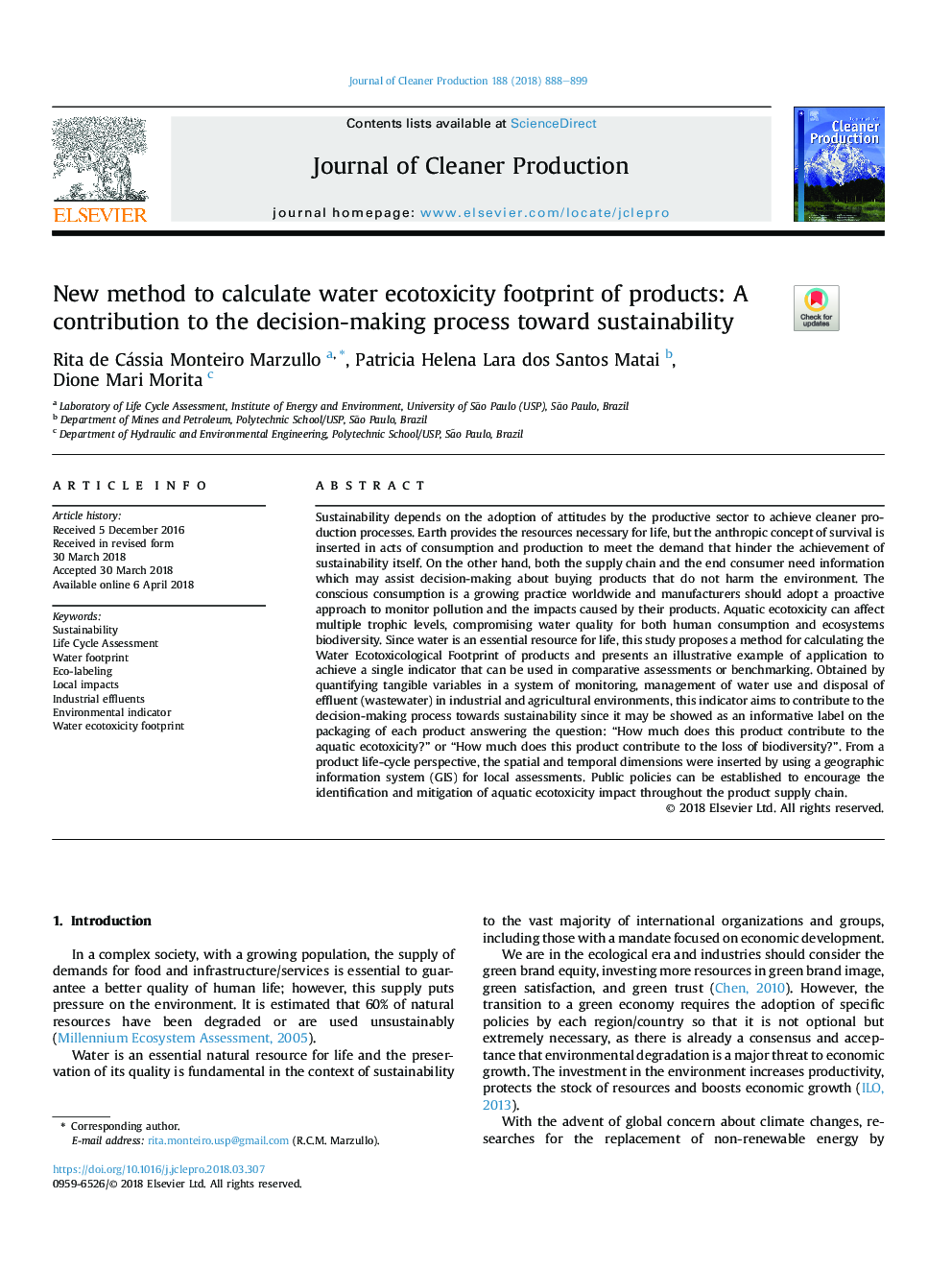| Article ID | Journal | Published Year | Pages | File Type |
|---|---|---|---|---|
| 8095700 | Journal of Cleaner Production | 2018 | 12 Pages |
Abstract
Sustainability depends on the adoption of attitudes by the productive sector to achieve cleaner production processes. Earth provides the resources necessary for life, but the anthropic concept of survival is inserted in acts of consumption and production to meet the demand that hinder the achievement of sustainability itself. On the other hand, both the supply chain and the end consumer need information which may assist decision-making about buying products that do not harm the environment. The conscious consumption is a growing practice worldwide and manufacturers should adopt a proactive approach to monitor pollution and the impacts caused by their products. Aquatic ecotoxicity can affect multiple trophic levels, compromising water quality for both human consumption and ecosystems biodiversity. Since water is an essential resource for life, this study proposes a method for calculating the Water Ecotoxicological Footprint of products and presents an illustrative example of application to achieve a single indicator that can be used in comparative assessments or benchmarking. Obtained by quantifying tangible variables in a system of monitoring, management of water use and disposal of effluent (wastewater) in industrial and agricultural environments, this indicator aims to contribute to the decision-making process towards sustainability since it may be showed as an informative label on the packaging of each product answering the question: “How much does this product contribute to the aquatic ecotoxicity?” or “How much does this product contribute to the loss of biodiversity?”. From a product life-cycle perspective, the spatial and temporal dimensions were inserted by using a geographic information system (GIS) for local assessments. Public policies can be established to encourage the identification and mitigation of aquatic ecotoxicity impact throughout the product supply chain.
Keywords
Related Topics
Physical Sciences and Engineering
Energy
Renewable Energy, Sustainability and the Environment
Authors
Rita de Cássia Monteiro Marzullo, Patricia Helena Lara dos Santos Matai, Dione Mari Morita,
